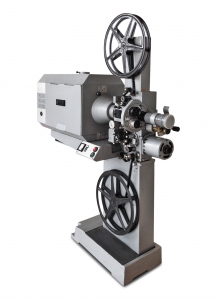Without getting into a tedious history of a sales tax, the tax was essentially created during the Great Depression in the 1930’s. The first sales tax laws were hastily and poorly drafted. The poorly drafted laws were copied from state to state. The sales tax regime was designed to tax individuals on the price of goods acquired for personal consumption. Conversely, the tax should not apply to the purchases made for business use, or what is known as business inputs.
In the early days, the easiest (not necessarily the correct) way was to tax the retail sale of tangible personal property (“TPP”). It is this primitive ideal which is embedded in the 50-60 year old sales tax laws that has created many of the issues in our much more complex economy of the 2000’s. Even with the changing of the times and the economy, our lawmakers and courts continue to ask the age old question that comes along with the foundation of the sales tax policy and design. Courts and lawmakers continue to struggle with what is “TPP” as opposed to real or intangible property. Why has no one stopped to think whether this should be the question at all? Shouldn’t the question be whether the goods are personally consumed as opposed to a business input? It is this fundamental problem and the state’s unwillingness to ask this question that has led to many of the inconsistent and puzzling rulings. These issues have been in the forefront for several decades and until the states change their way of thinking, these issues will continue to be problematic in effectively administering a state sales tax.
A classic example of the TPP versus intangible conundrum is Washington Times Herald v. District of Columbia, 213 F. 2d 23 (D.C. Cir. 1954). This case involved a newspaper publisher which purchased comic strips from an artist. The comic strips were delivered on mats (TPP). In this case the court was confronted with whether the newspaper was purchasing taxable TPP or nontaxable service contracts. The court decided that the transaction was for nontaxable artistic services because without the art the mats were practically worthless.
In a strikingly similar scenario, the D.C. District Court was faced with the same problem in 1964 in District of Columbia v. Norwood, 336 F. 2d 746. Instead of newspaper mats, Norwood purchased motion pictures. Clearly if a drawing delivered on a mat is for professional services, a motion picture delivered on a film is for services as well, right? Without much analysis the court stated that the sales were clearly of taxable TPP.
Hopefully, you can already see the problem with this tangible vs. intangible problem. Is a consumer really buying a service or TPP? What about going to a dentist to have a cavity filled? Is the patient buying the TPP (the metal) or the dentists services? What about going to a lawyer’s office for a will? Is the client buying the lawyers services or the physical piece of paper? Using this fallacy of TPP vs. services, things can get grey in a hurry.
In 2012, nearly 60 years after Washington Times Herald was decided, New York was faced with nearly the same exact question. In American Multi-Cinema, Inc. v. New York Division of Tax Appeals, DTA No. 823589, 823590, and 823646 (June 21, 2012), a movie theatre purchased movies on a portable hard drive. Naturally the state argued the theatre was purchasing TPP (the hard drive) and the theatre argued it was clearly for services. The court ruled in favor of the Taxpayer and stated the primary purpose of the transaction was not for the incidental hard drive. Rather the hard-drive was merely an “ancillary vessel” used to deliver an intangible file.

Like 60 years of case law to this very point, this rule is unworkable. Is a will an ancillary vessel to lawyers’ services? Is a metal filling the primary purpose of a transaction, or is it the dentist services? In virtually every situation, both elements are critical in a mixed transaction. If the states and the courts simply asked whether the transaction is a business input or for personal consumption, the law becomes much less muddy. After all that is the purpose of the taxing scheme in the first place.
From a practical perspective, many states take the position of TPP in the mixed transaction arena. In tough economic times, many states have shifted from fair administrators of the tax laws to extorting tax from entrepreneurs. If you or your client faces a situation like this it will likely have to be protested within the agency or litigated in court. If you or your client are facing or have faced an interesting mixed transaction situation, please contact me as I am interested to hear about it.
About the author: Mr. Donnini is a multi-state sales and use tax attorney and an associate in the law firm Moffa, Gainor, & Sutton, PA, based in Fort Lauderdale, Florida. Mr. Donnini’s primary practice is multi-state sales and use tax as well as state corporate income tax controversy. Mr. Donnini also practices in the areas of federal tax controversy, federal estate planning, and Florida probate. Mr. Donnini is currently pursuing his LL.M. in Taxation at NYU. If you have any questions please do not hesitate to contact him via email or phone listed on this page.
 Multi-State Tax Law Blog
Multi-State Tax Law Blog

